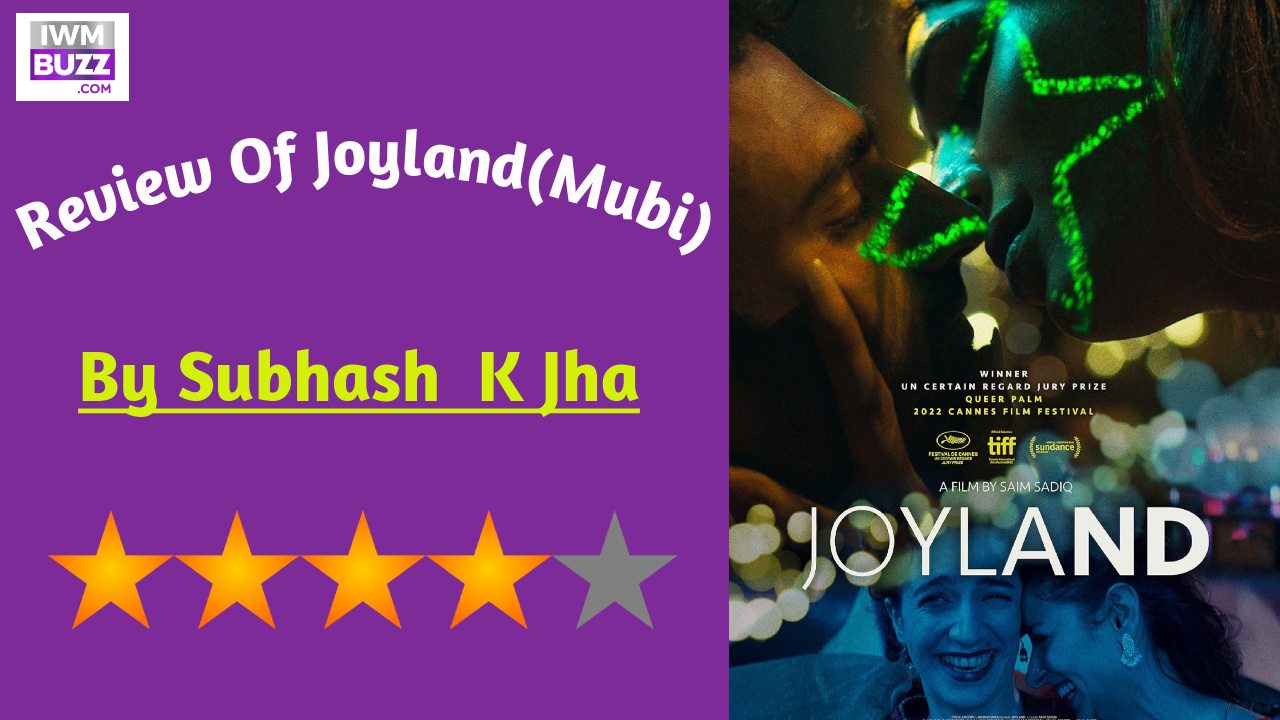Joyland(Mubi)
Rating: ****
Saim Sadiq’s Joyland is a very strange beast, and I mean that in the most complimentary and positive sense possible. It is a lugubriously luminous take on sexual repression, heightened and demolished by a feeling of imminent dread which defines all repressed societies.
There is a lot of laughter and festivity in the household in Lahore where the film unfolds. But scratch the surface,and we see profoundly unhappy people struggling to express their sexuality , trying to find their identity in an atmosphere of humid whispers and secrets. The louder these people talk, the more heartily they laugh, the less their chances of finding inner peace and true joy.
I think Kaifi Azmi crystallized the theme of Joyland long before: Tum itna jo muskura rahe ho kya gham hai jissko chupa rahe ho.
What ails Haider(Ali Junejo) younger son of the Rana family and the hero of our story? He is jobless when we first meet him while wife his feisty wife Mumtaz(Rasti Farooq) is an earning member of the family. Haider likes to do the things women are normally expected to: he cleans the home, helps with the cooking and takes care of his little nieces. He is adorable . But is he gay or bisexual? Or wait: are we indulging in the exact stereotypes that this fearless lucid film seems to demolish, piece by piece?
There is a heartbreaking honesty in the storytelling that is frequently challenged by incomplete inconclusive characters. Until the end I had no clue of Haider’s sexual orientation. Notoriously, Haider undertakes a highly volatile and dangerous relationship with a transgender erotic dancer Biba(Alina Khan).This is where one thinks Haider has finally discovered his sexual and emotional bearings. But no. The affair with Biba, doomed as it is from the outset, ends in a mess.
There is an iconic moment in the film, ominously still on the surface, where Haider carries Biba’s giant-sized cardboard cut-out on a scootie. But like the lives that this deeply meditative film describes, the poster is left unattended .
This is a fiercely original highly provocative and singularly sensitive film on unfinished lives. It is also about the lies we tell each other and to ourselves in closely-knit families just to keep the show on the road.And when the tempestuously independent Mumtaz(an incredible Rasti Farooq) takes a drastic step at the end, we wonder why we didn’t see it coming….or did we? Were we just hoping that it would all add up in the end, when it seldom,if ever, does?
There is another track in the plot about the wheel-chaired patriarch of the family(Salman Peerzada) and his lonely widowed neighbour which tells us that the elderly have the right to companionship and sex as much as the young.
Old or young the Joyland universe is populated by unhappy sexually repressed people who reach out into the wrong spaces for comfort. My favourite moments in the storytelling are the shared giggles between Mumtaz and her sister-in-law Nucchi(Sarwat Gilani). Taking a smoke on the rooftop, giggling over a secret joke the two women best represent the fey spirit of the film.
Joyland is not a film of comprehensive conclusive emotions. It leaves many questions on what lies underneath, unanswered. But it also offers the joys of seeing inherently lonely warm people who deserve better in life, reaching out into the void hoping their hands would meet a warm touch.


